When I got pregnant in 2018, I received my share of platitudes and breezy advice reserved for new mothers-to-be: Amazon Prime (fuck social justice, think survival, mama!); a bottle of wine at an arm’s length, always; try not to do it all; tell your spouse what you need—men need to be told; do not force potty training; take a break from work postpartum—you should be working to live, not living to work! No one though, not even my writer friends, told me how new and early motherhood would reduce my weekly work hours by half, without necessarily reducing the weekly workload.
Now that I’ve wrapped up a third year of parenting, there is no denying that motherhood has been the most demanding and fulfilling experience of my life. That said, every time nostalgia about a pre-kid life takes over, I pine for the lush reading life I once took for granted—a nook where I could get quiet with a book for hours at a stretch, discover new worlds, the non-Columbus way, and receive ideas from ether because reading forces you into a certain stillness. These days, my reading life is sparse—an hour a day on an average, beyond “screen time” and all that I read through social media or cyber news. And because, in any week, I’m reading and re-reading some of my favorites, what follows is a list of books that offers no linear progression; it is clustered around obsessions that currently feed my reading life.

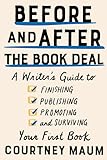
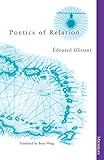
 2021 was a year I was in the last leg of a decade-and-half long pregnancy with my upcoming debut novel, Border Less. As I fretted over and took care of the administrative aspects of birthing a book, I read Courtney Maum’s Before and After the Book Deal: A Writer’s Guide to Finishing, Publishing, Promoting, and Surviving Your First Book, a terrific resource for any debut author navigating the industry. At different points of the year, I was making final edits to my manuscript, proofreading and getting the novel ready to be sent out to reviewers and blurb writers. Releasing the book to early readers and professionals in the field brought its share of self-doubting toward my voice as a brown woman writer, even if I’ve been teaching, writing, and publishing about non-colonial ways of storytelling for two decades. To shut up the imperial voices in my head adjudicating good storytelling, I returned to books that influence my aesthetic vision in Border Less; they’re staples within my teaching too. I re-read favorite excerpts in Edward Said’s Culture and Imperialism, Edouard Glissant’s Poetics of Relation, Amitav Ghosh’s The Great Derangement: Climate Change and the Unthinkable—books that explore postcolonial ways of telling a story. Around this time, I was also curating a roundtable with authors for Poets & Writers to voice what it means for historically marginalized writers to tell their stories in ways that honor their own contexts over the literary establishment’s self-serving ideas about Art. I read authors I was to interview soon. I re-read Viet Thanh Nguyen’s op-ed in The New York Times, “Viet Thanh Nguyen Reveals How Writers’ Workshops Can Be Hostile,” then read The Committed, sequel to his Pulitzer winning novel, The Sympathizer, as both novels explore in various ways a “non-workshop” aesthetic of storytelling. I devoured Matthew Salesses’s Craft in the Real World: Rethinking Fiction Writing and Workshopping and Felicia Rose Chavez’s The Anti-Racist Writing Workshop: How To Decolonize the Creative Classroom—nonfiction books about non-colonial storytelling that muzzled my self-doubting and offered a much-needed reminder on who I was writing for.
2021 was a year I was in the last leg of a decade-and-half long pregnancy with my upcoming debut novel, Border Less. As I fretted over and took care of the administrative aspects of birthing a book, I read Courtney Maum’s Before and After the Book Deal: A Writer’s Guide to Finishing, Publishing, Promoting, and Surviving Your First Book, a terrific resource for any debut author navigating the industry. At different points of the year, I was making final edits to my manuscript, proofreading and getting the novel ready to be sent out to reviewers and blurb writers. Releasing the book to early readers and professionals in the field brought its share of self-doubting toward my voice as a brown woman writer, even if I’ve been teaching, writing, and publishing about non-colonial ways of storytelling for two decades. To shut up the imperial voices in my head adjudicating good storytelling, I returned to books that influence my aesthetic vision in Border Less; they’re staples within my teaching too. I re-read favorite excerpts in Edward Said’s Culture and Imperialism, Edouard Glissant’s Poetics of Relation, Amitav Ghosh’s The Great Derangement: Climate Change and the Unthinkable—books that explore postcolonial ways of telling a story. Around this time, I was also curating a roundtable with authors for Poets & Writers to voice what it means for historically marginalized writers to tell their stories in ways that honor their own contexts over the literary establishment’s self-serving ideas about Art. I read authors I was to interview soon. I re-read Viet Thanh Nguyen’s op-ed in The New York Times, “Viet Thanh Nguyen Reveals How Writers’ Workshops Can Be Hostile,” then read The Committed, sequel to his Pulitzer winning novel, The Sympathizer, as both novels explore in various ways a “non-workshop” aesthetic of storytelling. I devoured Matthew Salesses’s Craft in the Real World: Rethinking Fiction Writing and Workshopping and Felicia Rose Chavez’s The Anti-Racist Writing Workshop: How To Decolonize the Creative Classroom—nonfiction books about non-colonial storytelling that muzzled my self-doubting and offered a much-needed reminder on who I was writing for.



 As I continued to struggle to make time for reading while writing, editing, freelancing, book-birthing, and parenting in a pandemic, interviews offered a way out with imposed deadlines, and as much, a satiation of my curiosity toward the latest by peers. For the interviews I conducted for Kweli, Catapult, and Electric Literature, I read new books by writers of South Asian descent who share my obsession with the intersection of literature and P/power. I read Sonora Jha’s memoir on parenting, How to Raise a Feminist Son: Motherhood, Masculinity, and the Making of my Family, Aruni Kashyap’s collection of poems on state violence in Northeastern India, There is No Good Time for Bad News, as well as Suchitra Vijayan’s bold journalism on state violence in India, Midnight’s Borders. I read Amitav Ghosh’s nonfiction on climate change, The Nutmeg’s Curse: Parables for a Planet in Crisis—a scathing critique of European colonialism and capitalism that spawned our current environmental crisis and a demise of literary imagination, and a blueprint for a more sustainable future.
As I continued to struggle to make time for reading while writing, editing, freelancing, book-birthing, and parenting in a pandemic, interviews offered a way out with imposed deadlines, and as much, a satiation of my curiosity toward the latest by peers. For the interviews I conducted for Kweli, Catapult, and Electric Literature, I read new books by writers of South Asian descent who share my obsession with the intersection of literature and P/power. I read Sonora Jha’s memoir on parenting, How to Raise a Feminist Son: Motherhood, Masculinity, and the Making of my Family, Aruni Kashyap’s collection of poems on state violence in Northeastern India, There is No Good Time for Bad News, as well as Suchitra Vijayan’s bold journalism on state violence in India, Midnight’s Borders. I read Amitav Ghosh’s nonfiction on climate change, The Nutmeg’s Curse: Parables for a Planet in Crisis—a scathing critique of European colonialism and capitalism that spawned our current environmental crisis and a demise of literary imagination, and a blueprint for a more sustainable future.

 A propos desi peers, I also read Anjali Enjeti’s debut collection of essays, Southbound, an exploration of her mixed-race identity and political activism in Georgia where the author lives. Unlike narrative forms that are a focus of my writing and teaching, poetry is a genre where every word holds way more weight so it takes me much longer to finish reading a book of poetry. Here, I look forward to returning to hybrid books of poems whose excerpts I’ve read and loved: Kama La Mackerel’s Zom-Fam, Divya Victor’s Curb, and Gayatri Sethi’s Unbelonging.
A propos desi peers, I also read Anjali Enjeti’s debut collection of essays, Southbound, an exploration of her mixed-race identity and political activism in Georgia where the author lives. Unlike narrative forms that are a focus of my writing and teaching, poetry is a genre where every word holds way more weight so it takes me much longer to finish reading a book of poetry. Here, I look forward to returning to hybrid books of poems whose excerpts I’ve read and loved: Kama La Mackerel’s Zom-Fam, Divya Victor’s Curb, and Gayatri Sethi’s Unbelonging.


 In the second half of 2021, and in sync with life circumstances, I was working on an essay about becoming a mother-writer for Poets & Writers, a piece about the specific dance between the personal and professional mother-writers undertake, often in the early stages of their journeys. In the process of reading other writers on writing, I hoped to find a blueprint for my own path, one that would bring more ease with the acute multitasking my current life asked of me. As research for my essay-in-progress, I re-read the Canon (emphasis on uppercase C) on writing, books mostly by white or male authors on what it means to become one, starting with Dorothea Brande’s Becoming a Writer, Anne Lamott’s Bird by Bird, Stephen King’s On Writing and Ray Bradbury’s Zen in the Art of Writing. I read Haruki Murakami’s What I Talk About When I Talk About Running, a memoir on running that talks as much about writing in indirect ways. I didn’t find much of a blueprint for my life as an early mother-writer in this Canon but I did invest, thanks to Murakami, a chunk of my annual savings on a second elliptical cum stationary bike for the sole reason that it offered two extra layers of resistance. Returning to that WIP on mother-writers, I read essays published by white mother-writers in various online publications including Longreads, the Paris Review, and Literary Hub, narratives that left me a tad cold again with their unnamed whiteness masquerading as the “universal” mother’s story. For the last leg of research for my essay, I read books on motherhood by BIWOC: Louise Erdrich’s astutely observed, lyrical book, The Blue Jay’s Dance: A Memoir of Early Motherhood, excerpts from Revolutionary Mothering: Love on the Front Lines, co-edited by Alexis Pauline Gumbs, China Martens, and Mai’a Williams, and finally, a story of early motherhood I most related to amid everything I read on the topic—Camille Dungy’s lush, heart-rending memoir-in-essays, Guidebook to Relative Strangers Journeys into Race, Motherhood, and History.
In the second half of 2021, and in sync with life circumstances, I was working on an essay about becoming a mother-writer for Poets & Writers, a piece about the specific dance between the personal and professional mother-writers undertake, often in the early stages of their journeys. In the process of reading other writers on writing, I hoped to find a blueprint for my own path, one that would bring more ease with the acute multitasking my current life asked of me. As research for my essay-in-progress, I re-read the Canon (emphasis on uppercase C) on writing, books mostly by white or male authors on what it means to become one, starting with Dorothea Brande’s Becoming a Writer, Anne Lamott’s Bird by Bird, Stephen King’s On Writing and Ray Bradbury’s Zen in the Art of Writing. I read Haruki Murakami’s What I Talk About When I Talk About Running, a memoir on running that talks as much about writing in indirect ways. I didn’t find much of a blueprint for my life as an early mother-writer in this Canon but I did invest, thanks to Murakami, a chunk of my annual savings on a second elliptical cum stationary bike for the sole reason that it offered two extra layers of resistance. Returning to that WIP on mother-writers, I read essays published by white mother-writers in various online publications including Longreads, the Paris Review, and Literary Hub, narratives that left me a tad cold again with their unnamed whiteness masquerading as the “universal” mother’s story. For the last leg of research for my essay, I read books on motherhood by BIWOC: Louise Erdrich’s astutely observed, lyrical book, The Blue Jay’s Dance: A Memoir of Early Motherhood, excerpts from Revolutionary Mothering: Love on the Front Lines, co-edited by Alexis Pauline Gumbs, China Martens, and Mai’a Williams, and finally, a story of early motherhood I most related to amid everything I read on the topic—Camille Dungy’s lush, heart-rending memoir-in-essays, Guidebook to Relative Strangers Journeys into Race, Motherhood, and History.


 In summer 2021, when I took a week’s break from writing and mothering, I read for the sheer pleasure of discovery—what luxury. I read Morgan Jerkins’s Caul Baby, a book on Black motherhood and historic Harlem where I’d rented an Airbnb (coincidence!) and Aline Ohanesian’s debut novel, Orhan’s Inheritance, on Armenian genocide that’s also a nod to the Nobel Laureate from Turkey, Orhan Pamuk. I read Jill McCorkle’s Hieroglyphics, a moving novel on what it means to lose one’s parents as a child and to release a past that crushes us on a daily basis, often subconsciously. While flying in and out of Los Angeles, and in parks of New York City where I was determined to not read anything literary, I read books on witchcraft because as a Yoga lover and desi feminist, I’m interested in the intersection of ritual and manifestation, and curious what other cultures have on the topic.
In summer 2021, when I took a week’s break from writing and mothering, I read for the sheer pleasure of discovery—what luxury. I read Morgan Jerkins’s Caul Baby, a book on Black motherhood and historic Harlem where I’d rented an Airbnb (coincidence!) and Aline Ohanesian’s debut novel, Orhan’s Inheritance, on Armenian genocide that’s also a nod to the Nobel Laureate from Turkey, Orhan Pamuk. I read Jill McCorkle’s Hieroglyphics, a moving novel on what it means to lose one’s parents as a child and to release a past that crushes us on a daily basis, often subconsciously. While flying in and out of Los Angeles, and in parks of New York City where I was determined to not read anything literary, I read books on witchcraft because as a Yoga lover and desi feminist, I’m interested in the intersection of ritual and manifestation, and curious what other cultures have on the topic.


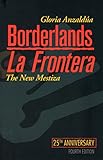 Since I finished my long tenure as a student in academia, my biggest chunk of reading in any year comes from the teaching prep I undertake for my own students. 2021 was no exception to this life pattern. In Spring and Fall, I taught one of my usual literature seminars at UCLA called “Empire, Border-crossing, and Multiethnic Storytelling.” As part of my syllabi, I re-read the staples in my teaching that introduce the relationship between literature and power to undergraduates in an accessible way: Robert Young’s Postcolonialism: A Very Short Introduction, excerpts from Ania Loomba’s Colonialism/Postcolonialism, Gloria Anzaldúa’s Borderlands/La Frontera: The New Mestiza, Audre Lorde’s Sister Outsider, bell hook’s Feminist Theory from Margin to Center, Julie Rivkin and Michael Ryan’s Literary Theory: An Anthology, in addition to excerpts from above mentioned books by Edward Said, Edouard Glissant, and Amitav Ghosh. I re-read contemporary American novels that challenge in many ways the white, male conventions of storytelling because the topic continues to fascinate me: Sandra Cisneros’s The House on Mango Street, Edwidge Danticat’s The Dew Breaker, Laila Lalami’s Hope and Other Dangerous Pursuits, and Justin Torres’s We the Animals. On a diatribe of American identity and its myth of the “melting pot,” I read Cathy Park Hong’s fiery nonfiction book, Minor Feelings: An Asian American Reckoning, Laila Lalami’s Conditional Citizens, inflected by a post-9/11, Arab American perspective, and Imani Perry’s poignant, epistolary nonfiction on Black motherhood, Breathe: A Letter to My Sons. I read Natalie Diaz’s Pulitzer-winning book, Postcolonial Love Poem, powerful poems that explore a fractured American identity, settler colonialism, queer love, and desert landscapes as repositories of indigenous legacies and American amnesia. I re-read Jhumpa Lahiri’s linguistic autobiography, In Other Words, a book I deeply relate to as someone fluent in French who gets how the love of a foreign language can alter one’s narrow, nationalistic ideas of identity. As the last book for my teaching this year, I read Elissa Washuta’s highly innovative essay collection, White Magic. Laced with sardonic humor, the books offers an incisive critique of settler colonialism, white capitalism, and patriarchy; it offers a meditation on generational trauma, healing, indigenous spirituality, the shallowness of a global Internet culture, and the form of the personal essay itself too, among other things.
Since I finished my long tenure as a student in academia, my biggest chunk of reading in any year comes from the teaching prep I undertake for my own students. 2021 was no exception to this life pattern. In Spring and Fall, I taught one of my usual literature seminars at UCLA called “Empire, Border-crossing, and Multiethnic Storytelling.” As part of my syllabi, I re-read the staples in my teaching that introduce the relationship between literature and power to undergraduates in an accessible way: Robert Young’s Postcolonialism: A Very Short Introduction, excerpts from Ania Loomba’s Colonialism/Postcolonialism, Gloria Anzaldúa’s Borderlands/La Frontera: The New Mestiza, Audre Lorde’s Sister Outsider, bell hook’s Feminist Theory from Margin to Center, Julie Rivkin and Michael Ryan’s Literary Theory: An Anthology, in addition to excerpts from above mentioned books by Edward Said, Edouard Glissant, and Amitav Ghosh. I re-read contemporary American novels that challenge in many ways the white, male conventions of storytelling because the topic continues to fascinate me: Sandra Cisneros’s The House on Mango Street, Edwidge Danticat’s The Dew Breaker, Laila Lalami’s Hope and Other Dangerous Pursuits, and Justin Torres’s We the Animals. On a diatribe of American identity and its myth of the “melting pot,” I read Cathy Park Hong’s fiery nonfiction book, Minor Feelings: An Asian American Reckoning, Laila Lalami’s Conditional Citizens, inflected by a post-9/11, Arab American perspective, and Imani Perry’s poignant, epistolary nonfiction on Black motherhood, Breathe: A Letter to My Sons. I read Natalie Diaz’s Pulitzer-winning book, Postcolonial Love Poem, powerful poems that explore a fractured American identity, settler colonialism, queer love, and desert landscapes as repositories of indigenous legacies and American amnesia. I re-read Jhumpa Lahiri’s linguistic autobiography, In Other Words, a book I deeply relate to as someone fluent in French who gets how the love of a foreign language can alter one’s narrow, nationalistic ideas of identity. As the last book for my teaching this year, I read Elissa Washuta’s highly innovative essay collection, White Magic. Laced with sardonic humor, the books offers an incisive critique of settler colonialism, white capitalism, and patriarchy; it offers a meditation on generational trauma, healing, indigenous spirituality, the shallowness of a global Internet culture, and the form of the personal essay itself too, among other things.
 On weekends when I’m not working or taking care of social, domestic, and family commitments, the nerd in me returns to books again as one form of recharge. Only this time, I make sure to not read anything literary. For the weekends of 2021, I read excerpts from several books from my home library on Yoga, spirituality, holistic healing, manifestation, chakras, channeling, crystals, and rocks, and The Bhagawad Gita as commented upon by Sri Aurobindo.
On weekends when I’m not working or taking care of social, domestic, and family commitments, the nerd in me returns to books again as one form of recharge. Only this time, I make sure to not read anything literary. For the weekends of 2021, I read excerpts from several books from my home library on Yoga, spirituality, holistic healing, manifestation, chakras, channeling, crystals, and rocks, and The Bhagawad Gita as commented upon by Sri Aurobindo.

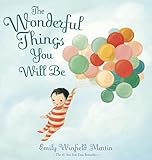
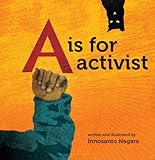 Last but certainly not the least, my readerly highlight for the year was Storytime with my son, books I read aloud to the toddler after tucking him in bed each evening. We read several illustrated books together but the favorites my son wanted me to keep returning to are Sanjay Patel and Emily Haynes’s Ganesha’s Sweet Tooth, Emily Winfield Martin’s The Wonderful Things You Will Be, Innosanto Nagara’s A is for Activist, Eric Carle’s The Very Hungry Caterpillar, Kabir Sehgal and Surishtha Sehgal’s A Bucket of Blessings, and Allison Jandu’s Let’s Go to the Potty!
Last but certainly not the least, my readerly highlight for the year was Storytime with my son, books I read aloud to the toddler after tucking him in bed each evening. We read several illustrated books together but the favorites my son wanted me to keep returning to are Sanjay Patel and Emily Haynes’s Ganesha’s Sweet Tooth, Emily Winfield Martin’s The Wonderful Things You Will Be, Innosanto Nagara’s A is for Activist, Eric Carle’s The Very Hungry Caterpillar, Kabir Sehgal and Surishtha Sehgal’s A Bucket of Blessings, and Allison Jandu’s Let’s Go to the Potty!
More from A Year in Reading 2021 (opens in a new tab)
Don’t miss: A Year in Reading 2020, 2019, 2018, 2017, 2016, 2015, 2014, 2013, 2012, 2011, 2010, 2009, 2008, 2007, 2006, 2005
.









